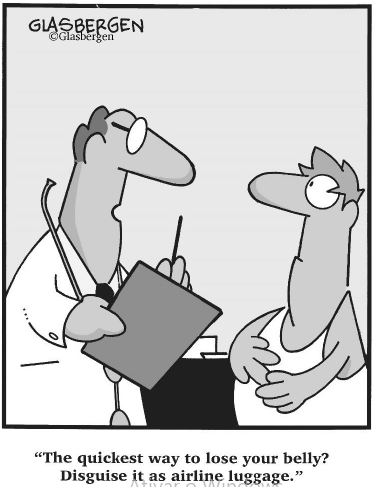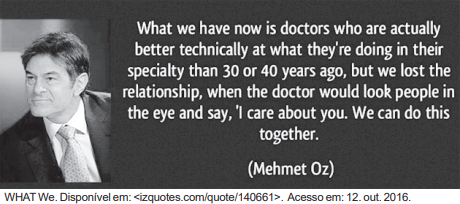Questões de Inglês - Reading/Writing - Saying
Leia o texto para responder à questão.
Why so few nurses are men

Ask health professionals in any country what the biggest problem in their health-care system is and one of the most common answers is the shortage of nurses. In ageing rich countries, demand for nursing care is becoming increasingly insatiable. Britain’s National Health Service, for example, has 40,000-odd nurse vacancies. Poor countries struggle with the emigration of nurses for greener pastures. One obvious solution seems neglected: recruit more men. Typically, just 5-10% of nurses registered in a given country are men. Why so few?
Views of nursing as a “woman’s job” have deep roots. Florence Nightingale, who established the principles of modern nursing in the 1860s, insisted that men’s “hard and horny” hands were “not fitted to touch, bathe and dress wounded limbs”. In Britain the Royal College of Nursing, the profession’s union, did not even admit men as members until 1960. Some nursing schools in America started admitting men only in 1982, after a Supreme Court ruling forced them to. Senior nurse titles such as “sister” (a ward manager) and “matron” (which in some countries is used for men as well) do not help matters. Unsurprisingly, some older people do not even know that men can be nurses too. Male nurses often encounter patients who assume they are doctors.
Another problem is that beliefs about what a nursing job entails are often outdated – in ways that may be particularly off-putting for men. In films, nurses are commonly portrayed as the helpers of heroic male doctors. In fact, nurses do most of their work independently and are the first responders to patients in crisis. To dispel myths, nurse-recruitment campaigns display nursing as a professional job with career progression, specialisms like anaesthetics, cardiology or emergency care, and use for skills related to technology, innovation and leadership. However, attracting men without playing to gender stereotypes can be tricky. “Are you man enough to be a nurse?”, the slogan of an American campaign, was involved in controversy.
Nursing is not a career many boys aspire to, or are encouraged to consider. Only two-fifths of British parents say they would be proud if their son became a nurse. Because of all this, men who go into nursing are usually already closely familiar with the job. Some are following in the career footsteps of their mothers. Others decide that the job would suit them after they see a male nurse care for a relative or they themselves get care from a male nurse when hospitalised. Although many gender stereotypes about jobs and caring have crumbled, nursing has, so far, remained unaffected.
(www.economist.com, 22.08.2018. Adaptado.)
De acordo com o segundo parágrafo,
Leia o texto para responder a questão.
Xennials, the microgeneration between
Gen X and Millennials
We’re all tired of hearing about millennials, but there’s a new group who we’re about to be talking about a lot more. Defined as the generation born between 1982 and 2004, millennials are aged between 13 and 35. The generation before, Gen X, spanned another 20 years, beginning in 1961 and ending in 1981.
Enter Xennials, the new term being used to describe people born between 1977 and 1983. Like the pessimistic Gen Xers before them, this microgeneration is not as tech savvy as the millennials who are considered digital natives. “The idea is there’s this micro or in-between generation between the Gen X group – who we think of as the depressed flanneletteshirt-wearing, grunge-listening children that came after the Baby Boomers and the millennials – who get described as optimistic, tech savvy and maybe a little bit too sure of themselves and too confident,” says Dan Woodman, Associate Professor of Sociology at the University of Melbourne.
Woodman went on to explain that while millennials have always grown up with technology, Xennials had to make an adjustment to embrace it. “It was a particularly unique experience. You have a childhood, youth and adolescence free of having to worry about social media posts and mobile phones... We learned to consume media and came of age before there was Facebook and Twitter and Snapchat and all these things where you still watch the evening news or read the newspaper,” he noted.
(Joy D’Souza. www.huffingtonpost.ca, 03.07.2017. Adaptado.)
No trecho do segundo parágrafo “too sure of themselves and too confident”, o termo em destaque pode ser substituído, sem alteração de sentido, por
TEXT

GLASBERGEN, R. (2018). The quickest way to lose your belly? [image]. Reprinted with permission of Glasbergen Cartoon Service. All rights reserved.
Verbal irony is the use of words to mean something different from what a person literally says. The cartoonists often use irony to create a humorous effect. In TEXT, for example, in saying: “Disguise it as airline luggage.”, the doctor actually means that
 Get Started Resources Who we are Events Sign In
Get Started Resources Who we are Events Sign In
E-mail:
1) _________________: Register
2) ________________________________
Every year, Technovation challenges girls all over the world to build a mobile app that will address a community problem. Since 2010, 5,000 girls from 28 countries have submitted to Technovation, thanks to dedicated volunteers around the world.
Girls do not need to have programming experience to participate, and Technovation is free for any girl who wants to participate.
3) ________________________________
Technovation’s success in changing girls’ attitudes about technology and entrepreneurship relies on local volunteers.
Volunteer Coaches recruit teams of girls to work with female mentors. Together, they come up with an app idea, conduct user research, create a business plan, and build the app prototype. Leaders from the technology and business sectors judge the submissions and provide feedback to the teams.
4) ________________________________
Technovation is a global program, but it’s also a global community, with volunteers, ambassadors, and teams all over the world sharing updates, asking and answering questions, and offering bottomless support and encouragement.
Join the conversation today, and connect with Technovation participants all over the world. Share your questions and ideas with those who know Technovation best – the people participating in it.
5) ______________________: April 21st, 2016

Adaptado de http:/www.technovationchallenge.org/?utm_content=bufferbi379&utm medium=social&utm_source=twitter com&utm_campaign=buffer. Acesso em: 02 maio 2016.
Os enunciados abaixo foram retirados do texto. Relacione as duas colunas, considerando a ordem em que os enunciados devem aparecer no texto.
( ) Join the newsletter list
( ) Technology Entrepreneurship Led By Girls
( ) Volunteer Driven Success
( ) A Global Community
( ) Submission Deadline
A sequência correta, de cima para baixo, é
Faça seu login GRÁTIS
Minhas Estatísticas Completas
Estude o conteúdo com a Duda
Estude com a Duda
Selecione um conteúdo para aprender mais:







